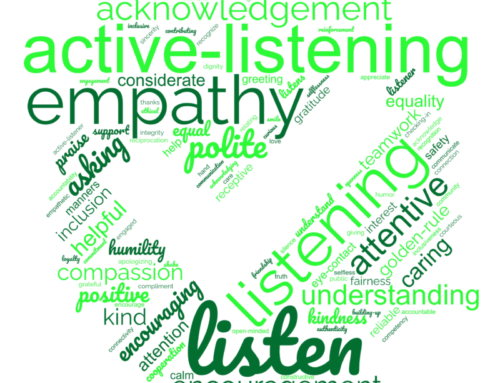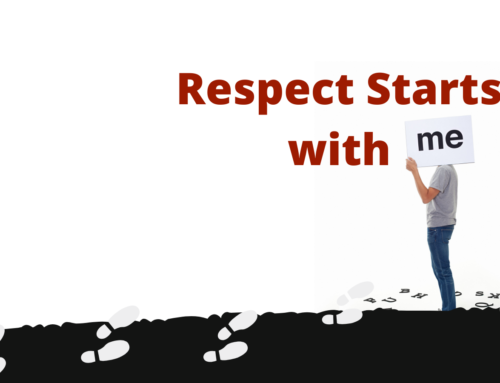How Respectful Conduct Impacts our Work Life
When we employ respectful conduct in the workplace we create the environment for success to grow.
“Everyone, from the CEO to the janitor, wants a better place to work.”
That line stood out to me from the pages of Margaret Heffernan’s book, Beyond Measure.
I don’t remember everything I read in every book, but if there are one or two ideas that resonate with me (like this quote), I consider that time well spent. After all, it helps me grow throughout the year, and that’s the point.
In fact, in my effort to ensure that my company’s Respectful Conduct training workshops always remain germane and relevant for our clients, I read a good deal.
My goal each year is to read 24 books.
I thought that my goal was a decent number…until I met two people in one of our workshops the other day who stated that their average is around 50!
Which begs the question, how many books do you read each year?
What Small Changes Could you Make at Work?
Well, if you need any suggestions, I recommend Margaret Heffernan’s book. It’s all about the big impact that small changes have in organizations.
She talks about how these surprisingly small changes that any organization can make, can propel them into a whole new version of themselves.
Consider an organization’s culture, for example. This huge aspect of any workplace can make a critical difference in whether people enjoy working there. And that culture is made up of small actions, habits, and choices that everyone makes—not just those in charge.
Listening more, asking better questions, and sharing information are small changes that can alter the ideas, insights, and connections that those systems can produce— beyond measure.
Demonstrating civil, respectful and polite behavior towards others isn’t hard to perform but has a massive and positive impact on everyone in the office. This exemplifies respectful conduct at work!
Of course, this doesn’t just apply to the workplace. Humans everywhere, have the same basic desires when it comes to how they want to be treated by others. The “Golden Rule” is alive and well.
Respectful Conduct Practices
In our Respectful Conduct training workshops, we ask participants how hard it would be to incorporate these small acts into their office:
- Greeting and acknowledging each other
- Saying please and thank you
- Acknowledging the impact of our behavior on others
- Welcoming feedback from each other
- Being approachable
- Acknowledging the contributions of others
- Respecting each other’s time commitments
- Addressing incivility, and
- Treating each other equally and with respect, no matter the conditions.
These don’t seem too much to ask, do they?
Bowling Alone
Because an organization’s culture is inherently democratic, a generous and humble mindset is necessary to keep that culture healthy. This quality of connectedness and the ease of idea flow is perhaps the foremost indicator of a healthy and respectful culture.
Here’s another book recommendation for you, one of my favorites in fact. Robert D. Putnam’s, Bowling Alone, speaks to how “social capital” within a community (geographic, interest-based, organizational, etc.) provides the backbone of relationships.
Social capital lies at the very heart of organizational cultures and respectful conduct
It essentially describes the sense of trust, knowledge, reciprocity, shared behaviors, values, and norms that create a quality of life within a group and make it resilient.
Just as you can build the physical capital of an organization by buying more stuff, and you can add to an organization’s intellectual capital by acquiring more qualifications, so too can you add to and develop an organization’s social capital.
It may sound complicated, but remember, it starts with small changes. But the only way to ensure that a company’s social capital remains strong is by ensuring that everyone demonstrates those positive actions and behaviors.
Let me repeat that: Everyone needs to make these changes, not just those in charge. When each small action is added together, massive changes can happen.
Atomic Habits for Respectful Conduct at work
I also recommend Atomic Habits by James Clear.
James Clear is known for his ability to distill complex topics into simple behaviors that can be easily applied to daily life and work. In Atomic Habits, he shares proven ideas from biology, psychology, and neuroscience to create an easy-to-understand guide for making good habits inevitable and bad habits impossible.
He talks about what he calls the “Four Laws of Behaviour Change”. These are a set of tools and strategies that people can use to build better systems and shape better habits.
Here are James’s Four Laws:
Make it obvious. He says that sometimes a habit will be hard to remember, so you need to make it obvious.
Make it attractive. At other times, a person won’t feel like starting a habit, so you need to make it attractive.
Make it easy. In some cases, a person may feel that a habit will be too difficult, so you will need to make it easy.
Make it satisfying. Finally, sometimes a person won’t feel like sticking with it, so you will need to make is satisfying.
Tiny Habits and Respectful Conduct
When you look at these laws, think about those tiny habits of civil and polite behavior. They are definitely obvious, definitely attractive, definitely easy, and definitely satisfying.
Remember, building habits is a continuous process. There is no finish line and it’s remarkable what you can build if you just don’t stop.
– the business you can build if you don’t stop working.
– the physique you can build if you don’t stop training.
– the knowledge you can build if you don’t stop learning.
– the fortune you can build if you don’t stop saving.
And it’s remarkable the friendships you can build if you don’t stop caring.
Small habits don’t add up—they compound. Tiny changes end in remarkable results.
So, let’s take that philosophy and all perform those tiny habits of polite and civil behavior at work.
They will grow and compound and then suddenly, you will end up with an organization where everyone is happy to be working.
After all, “Everyone from the janitor to the CEO wants a better place to work!”






